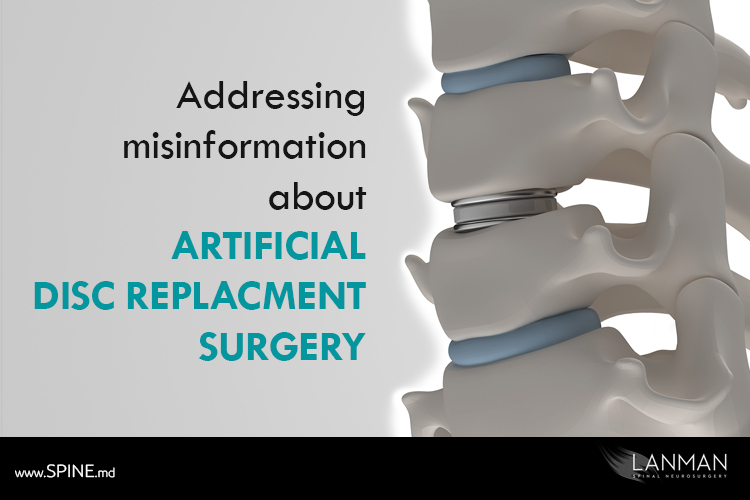A slipped disc, also known as a herniated or ruptured disc, occurs when the soft inner portion of a spinal disc protrudes through the tougher outer ring. This can cause pain, numbness, and weakness in the affected area. While many cases can be treated conservatively, surgical intervention becomes necessary for severe cases that do not respond to non-surgical treatments. By thoroughly understanding the costs involved, patients can financially prepare for their surgery and focus on their recovery without unexpected financial stress.
Factors Influencing the Cost of Slipped Disc Surgery
- Type of Surgery: The specific surgical procedure chosen significantly impacts costs. Minimally invasive techniques like microdiscectomy tend to be less expensive than more complex procedures like spinal fusion. A microdiscectomy typically costs $15,000-$35,000 on average, while a lumbar fusion can range from $60,000-$110,000. The complexity of the surgery, required equipment, and length of hospital stay all factor into these cost differences.
- Geographic Location: Healthcare costs vary considerably based on location.1 Major metropolitan areas generally have higher costs compared to rural regions due to increased overhead expenses. For example, a discectomy in Los Angeles may cost 30-50% more than the same procedure in a smaller Midwestern city.
- Surgeon’s Expertise: Choosing an experienced, specialized surgeon is crucial for optimal outcomes. Dr. Todd Lanman is a renowned artificial disc replacement (ADR) surgeon with extensive experience in spinal surgery advancements. As a leader in the field, Dr. Lanman specializes in ADR, which can offer benefits over traditional fusion surgery for appropriate candidates. While an expert surgeon’s fees may be higher, their expertise can lead to better outcomes and potentially lower costs from complications or revisions.
- Hospital and Facility Fees: The choice of hospital or surgical center significantly impacts overall costs. Fees cover operating room time, equipment, nursing care, and overnight stays. High-end facilities with premium amenities will have higher associated costs. These fees often make up a large portion of the total surgery cost, sometimes 40-60% of the total.
- Pre- and Post-Operative Care: Additional costs include preoperative consultations, imaging studies (MRI, CT scans), and lab work. Post-operative expenses involve follow-up visits, medications, and physical therapy. Physical therapy can cost $50-$350 per session.
Average Cost of Slipped Disc Surgery
General Cost Ranges for Different Surgeries in the U.S.
- Microdiscectomy: Total costs can range from $20,000 to $50,000
- Laminectomy: The range of costs are usually between $50,000 and $90,000
- Spinal Fusion: Spinal fusion may cost anywhere between $80,000 and $150,000
Insurance Coverage and Financing Options
Overview of Insurance Coverage for Slipped Disc Surgery
Most health insurance plans cover slipped disc surgery, but the extent of coverage can vary. Typically, insurance will cover:
- Surgical Costs: Including the surgeon’s fees, anesthesia, and hospital stay.
- Preoperative Consultations: Initial visits and diagnostic tests like MRIs or CT scans.
- Postoperative Care: Follow-up visits, physical therapy, and medication
Verification of Insurance Benefits and Out-of-Pocket Costs
- In-Network Providers: Ensure the surgeon and hospital are within your insurance network to minimize out-of-pocket costs.
- Coverage Limits: Check for any caps on coverage amounts or specific exclusions.
- Preauthorization Requirements: Some insurers require preauthorization for surgery to ensure it is medically necessary.
Steps to Understand and Verify Coverage Details:
- Review Your Policy: Read through your insurance policy to understand the coverage details.
- Contact Your Insurer: Call your insurance provider to clarify coverage specifics, including in-network providers and preauthorization requirements.
- Get a Cost Estimate: Request an estimate of out-of-pocket costs from your surgeon and hospital.
- Check for Additional Costs: Inquire about potential additional costs, such as copayments, deductibles, and coinsurance.
Financing Options
Payment Plans:
- How They Work: Payment plans allow you to spread the cost of surgery over several months or years. These plans are often offered by hospitals or third-party financing companies.
- Where to Find Them: Ask your hospital or surgeon if they offer payment plans or can recommend a financing company.
Medical Loans:
- Benefits: Medical loans can cover the entire cost of surgery, often with fixed interest rates and flexible repayment terms.
- Drawbacks: Interest rates can be high and failing to make payments can affect your credit score.
Credit Cards:
- Using Credit for Medical Expenses: Some patients use credit cards to pay for surgery, especially if they offer low or 0% introductory interest rates.
- Pros: Convenient and can be used immediately.
- Cons: High-interest rates start after the introductory period, which brings the potential for significant debt.
Understanding your insurance coverage and exploring financing options can help manage the costs associated with slipped disc surgery. Always verify details with your insurance provider and consider all financing options to find the best solution for your financial situation.
Schedule Your Consultation Today!
The cost of slipped disc surgery varies widely, ranging from $20,000 to $150,000 depending on the type of procedure. The main cost factors include the type of surgery, geographic location, surgeon’s expertise, hospital fees, and pre- and post-operative care. Insurance typically covers much of the cost, but patients should verify their coverage details and potential out-of-pocket expenses.
It’s crucial to thoroughly understand the potential costs involved in slipped disc surgery so that you can financially prepare for the procedure, make informed decisions about your treatment options, and avoid unexpected financial stress during your recovery.
Remember, while cost is an important factor, the quality of care and potential for positive outcomes should be the primary considerations when making decisions about your health.
For personalized advice and to explore your options for slipped disc surgery, it’s best to consult directly with a qualified spine specialist or neurosurgeon like Dr. Lanman.
Dr. Lanman has performed hundreds of spine surgery procedures over his long and prestigious career. Schedule a consultation today and he will be happy to review your unique case and provide tailored recommendations based on your specific medical condition and circumstances.







